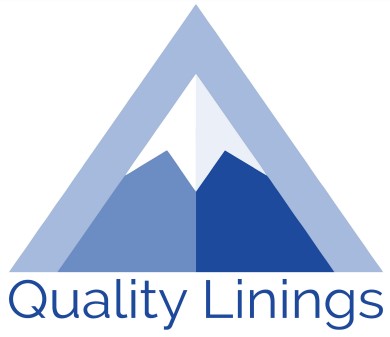The Future of Industrial Coatings: Protecting Infrastructure and Ensuring Public Safety for Years to Come
The Role that Industrial Coatings will Continue to Play in Infrastructure Protection
Exciting advancements in industrial coatings are revolutionizing the way we protect our infrastructure and ensure public safety. With the increasing demands placed on our bridges, buildings, and pipelines, it is more important than ever to have durable and long-lasting coatings that can withstand harsh conditions and prevent structural degradation. In this article, we will explore the future of industrial coatings and how they are being developed to meet the challenges of today and tomorrow.
Using cutting-edge technologies and innovative materials, engineers are creating coatings that provide superior protection against corrosion, fire, and natural elements. These coatings not only extend the lifespan of structures but also enhance their performance and reduce the need for costly repairs and maintenance. Whether it's a bridge exposed to high winds and saltwater or a pipeline carrying hazardous materials, the right industrial coating can make a significant difference in terms of safety and reliability.
We are Quality Linings and Painting and we specialize in industrial coatings, and we take pride in the way our work benefits critical infrastructure protection. Join us as we delve into the latest trends and advancements in industrial coatings, uncovering the solutions that will shape the future of infrastructure protection. Discover how these coatings are being developed to withstand the test of time and ensure the safety of our communities for years to come.
Importance of Industrial Coatings in Infrastructure Protection
Industrial coatings play a vital role in the protection of infrastructure, serving as a barrier between structural materials and potentially damaging environmental conditions. These coatings are designed to prevent corrosion, abrasion, and degradation that can arise from exposure to moisture, chemicals, and extreme temperatures. By acting as a protective layer, industrial coatings ensure that the underlying materials, such as steel and concrete, maintain their integrity and functionality over time. This is particularly critical in infrastructure sectors like bridges, highways, and buildings, where structural failure can have catastrophic consequences.
The economic implications of using industrial coatings cannot be overstated. By extending the lifespan of infrastructure, these coatings significantly reduce maintenance and repair costs over the long term. For instance, a well-coated bridge may require less frequent inspections and repairs, ultimately saving municipalities and taxpayers money. Moreover, the application of advanced coatings can help avoid costly shutdowns and disruptions that can occur when infrastructure fails. As cities continue to grow and aging infrastructure becomes more prevalent, investing in high-quality industrial coatings becomes not just a choice, but a necessity.
Furthermore, with the increasing frequency of extreme weather events attributed to climate change, the importance of robust industrial coatings is magnified. Coatings that can withstand harsh conditions—such as heavy rainfall, snow, and high winds—are essential for ensuring that infrastructure remains safe and operational. This resilience is crucial for public confidence in the safety and reliability of the structures they rely on daily. In summary, industrial coatings are indispensable for safeguarding infrastructure, providing economic benefits, and ensuring that communities remain resilient in the face of environmental challenges.
The Role of Industrial Coatings in Ensuring Public Safety
The safety of the public is intrinsically linked to the condition of the infrastructure they use. Industrial coatings contribute significantly to this safety by providing protective properties that prevent structural failures. For example, coatings applied to bridges and overpasses help to prevent rust and corrosion, which can lead to weakening and eventual collapse. The materials used in these coatings are engineered to resist environmental stressors, thereby maintaining the structural integrity that is critical for public safety.
Moreover, industrial coatings also play a key role in fire prevention. Certain coatings are formulated to be fire-retardant, providing an extra layer of protection for buildings and other structures, especially in high-risk areas. This is particularly important in urban environments where densely populated areas are more susceptible to fire hazards. The use of these advanced coatings can effectively slow the spread of fire, giving occupants valuable time to evacuate and emergency services to respond, thereby saving lives.
In addition to structural integrity and fire safety, industrial coatings also contribute to public health by minimizing the release of hazardous materials. For instance, coatings used in pipelines that transport chemicals or oil are designed to prevent leaks and spills, which could have disastrous effects on both the environment and public health. By ensuring that these coatings are properly maintained and applied, industries can significantly reduce the risk of contamination, thereby safeguarding the health and well-being of the community.
Advancements in Industrial Coatings Technology
The field of industrial coating has seen remarkable advancements in technology over the past few years, driven by the need for more durable and effective solutions. One of the most significant developments is the introduction of nanotechnology in coatings. Nanoparticles enhance the properties of coatings, making them more resistant to wear, corrosion, and environmental stressors. These advanced coatings can provide longer-lasting protection while reducing the frequency of maintenance and application, which is a major advantage in industries such as construction and manufacturing.
Another notable advancement is the shift towards environmentally friendly coatings. Traditional coatings often contain volatile organic compounds (VOCs), which can be harmful to both health and the environment. However, innovative formulations now include water-based and low-VOC options that maintain performance while minimizing harmful emissions. This transition is not only beneficial for compliance with environmental regulations but also aligns with the growing demand for sustainable practices across industries.
Furthermore, the advent of smart coatings is revolutionizing the industry. These coatings are embedded with sensors that can monitor the condition of the substrate and the coating itself. This technology allows for real-time assessment of wear and degradation, enabling timely maintenance before issues escalate. Smart coatings can provide alerts for corrosion, temperature changes, or chemical exposure, thereby enhancing infrastructure protection with safety and operational efficiency. As these technologies continue to evolve, they promise to transform the landscape of industrial coatings and infrastructure protection.
Key Industries that Benefit from Industrial Coatings
Several key industries benefit from industrial coatings, each requiring specific properties tailored to their operational needs. The oil and gas industry is one of the most prominent beneficiaries, as pipelines and storage tanks are constantly exposed to harsh chemicals and environmental conditions. Industrial coatings used in this sector are designed to resist corrosion and chemical degradation, ensuring the safe transport of materials while minimizing the risk of leaks or spills.
The construction industry also relies heavily on industrial coatings for protective and aesthetic purposes. Coatings used on buildings, bridges, and roads not only enhance durability but also provide a visually appealing finish that can withstand the elements. In particular, protective coatings that resist UV rays and weathering are crucial for maintaining the longevity of structures while also contributing to energy efficiency through reflective properties that reduce heat absorption.
Additionally, the marine industry experiences significant advantages from high-performance coatings. Ships and offshore platforms are subjected to extreme conditions, including saltwater exposure and biofouling. Specialized marine coatings are formulated to provide exceptional resistance to corrosion and marine growth, ensuring that vessels remain operational and safe over extended periods. These coatings are essential for maintaining the integrity of marine infrastructure and ensuring compliance with safety regulations.
Challenges and Solutions in the Industrial Coating Industry
Despite the advancements in industrial coatings technology, the industry faces several challenges that must be addressed to ensure continued progress. One significant challenge is the issue of surface preparation. For coatings to adhere effectively and provide the desired level of protection, the surfaces must be meticulously prepared. This can be a time-consuming and labor-intensive process, often requiring specialized equipment and expertise. To overcome this hurdle, the development of new surface preparation technologies and techniques is essential to streamline the application process.
Another challenge is the regulatory landscape surrounding industrial coatings. As environmental concerns grow, regulations regarding the formulation and application of coatings continue to evolve. Compliance with these regulations can be complex and costly for manufacturers. However, investing in research and development for eco-friendly formulations can not only meet regulatory requirements but also appeal to a growing market of environmentally conscious consumers.
Furthermore, the industry must address the challenge of skilled labor shortages. The application of industrial coatings often requires specialized skills and knowledge, which can be in short supply. To combat this issue, companies should invest in training programs that equip workers with the necessary skills to apply coatings effectively. Additionally, promoting careers in the coatings industry through outreach and education initiatives can help attract new talent and ensure the industry’s growth and sustainability.
Environmental Considerations in Industrial Coatings
As the world increasingly prioritizes sustainability, the environmental impact of industrial coatings has come under scrutiny. The production and application of traditional coatings often involve the release of harmful chemicals and solvents, which can contribute to air and water pollution. As a response, the industry is seeing a significant shift towards greener alternatives. Water-based coatings and those with low or zero VOC content are gaining popularity, providing effective performance while minimizing environmental harm.
Another important consideration is the life cycle of industrial coatings. Sustainable coatings are designed not only to perform well but also to be easily removed and recycled at the end of their life. This reduces waste and promotes a circular economy within the coatings industry. Research into biodegradable coatings is also on the rise, offering potential solutions that break down naturally without leaving harmful residues.
Additionally, the focus on reducing the carbon footprint of manufacturing processes is driving innovation in the coatings sector. Companies are exploring energy-efficient production methods and sourcing raw materials from sustainable sources. By prioritizing environmentally friendly practices, the industrial coatings industry can contribute to broader sustainability goals while still providing effective protection for infrastructure.
The Future of Industrial Coatings: Trends and Predictions
Looking ahead, the future of industrial coatings appears to be shaped by several key trends. One major trend is the continued integration of technology into coatings formulations. The development of smart coatings equipped with monitoring capabilities is likely to become more prevalent, allowing for predictive maintenance and real-time assessment of coating performance. This could revolutionize infrastructure management, significantly reducing downtime and maintenance costs.
Another trend is the growing demand for customization in coatings solutions. As industries face unique challenges, the need for tailored coatings that meet specific requirements will increase. Innovations in formulations and application techniques will allow manufacturers to create coatings that cater to a diverse range of environmental conditions and operational needs.
Moreover, the global push towards sustainability will further accelerate the adoption of green coatings. As regulations become stricter and industries strive for reduced environmental impact, the shift to eco-friendly formulations will be essential. Companies that prioritize sustainability in their products and processes will likely gain a competitive edge in the market, appealing to both consumers and regulatory bodies.
Innovations in Industrial Coatings for Enhanced Performance for Protecting Infrastructure
Innovations in industrial coatings are continuously enhancing their performance and applicability across various sectors. One significant area of improvement is the development of hybrid coatings that combine the best properties of different materials. For instance, hybrid coatings that integrate both organic and inorganic components can offer superior adhesion, flexibility, and durability, making them suitable for a wider range of applications.
Another exciting innovation is the emergence of self-healing coatings. These advanced coatings have the ability to repair themselves when damaged, offering a revolutionary solution for maintaining protective layers. This technology is particularly beneficial in high-wear environments, such as industrial machinery and transportation, where minimizing downtime and maintenance is critical.
Additionally, advancements in nanotechnology are paving the way for coatings with enhanced properties, such as increased resistance to heat, chemicals, and abrasion. Nanostructured coatings can create surfaces that repel dirt, water, and other contaminants, leading to easier maintenance and longer-lasting protection. As research in this area continues, we can expect to see even more sophisticated coatings that meet the evolving demands of various industries.
The significance of Industrial coatings for the Future of Critical Infrastructure Protection and Public Safety
In conclusion, industrial coatings are pivotal in protecting infrastructure and ensuring public safety as we move into the future. Their ability to protect against corrosion, fire, and environmental damage translates not only to extended longevity for structures but also to significant economic savings and enhanced safety for communities. As technology continues to evolve, the advancements in coatings will further contribute to the resilience and reliability of essential infrastructure.
The push towards sustainable practices and eco-friendly formulations will also shape the future of the industrial coatings industry. By prioritizing environmental considerations, the sector can align itself with global sustainability goals while providing effective protection. As we face increasing challenges from climate change and environmental degradation, the role of industrial coatings in mitigating these risks will become even more critical. Quality Linings & Painting offers both in-facility and field services for industrial painting.
Ultimately, the significance of industrial coatings lies not just in their technical performance, but in their contribution to the safety, functionality, and sustainability that helps with infrastructure protection that supports our daily lives. The continued innovation and development in this field will ensure that our communities remain safe and resilient for generations to come.
Call QLP at (303) 307-1313 or click here to send us a message.
Thank you for reading!
Leader in applications of High-Performance Coating, Intumescent (Fire Proofing) Coating, Powder Coating, Spray Applied Linings, Sand Blasting, and Rubber Lining.
We pride ourselves on Quality Work, Timely Deliveries, Excellent Customer Service and a Progressive Attitude.
Quality Linings & Painting is dedicated to improving the work and community. We’ve demonstrated this with our QLP Cares program giving back to causes around the work and our local community.




